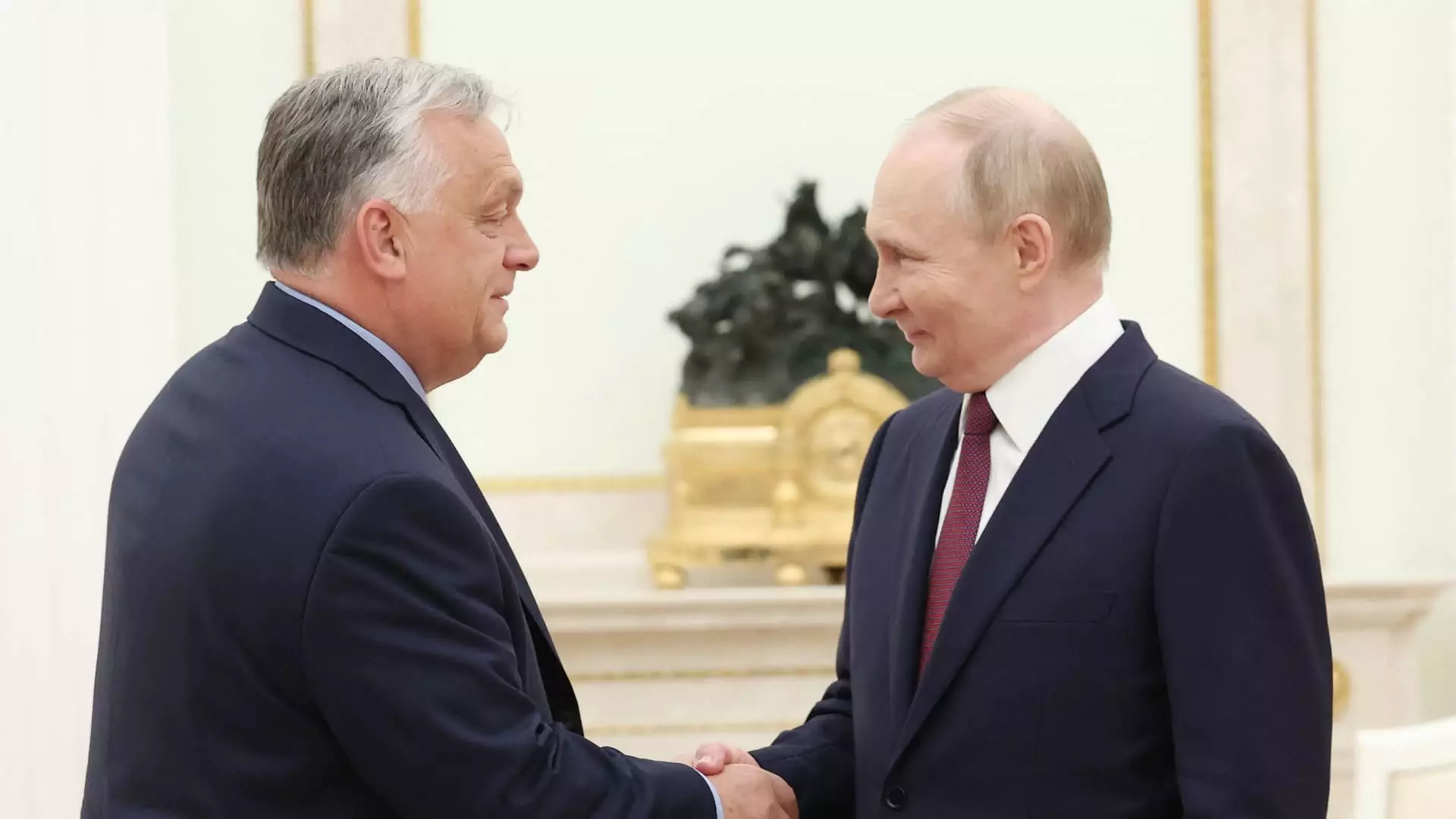Hungarian Prime Minister Viktor Orban has recently come under fire from the EU for his Friday trip to meet with Kremlin leader Vladimir Putin in Moscow. Orban, who has been dubbed a “peacemaker,” has been known for his opposition to EU and NATO military and financial aid measures in support of war-torn Ukraine. Despite most Western countries severing ties with Russia following its invasion in February 2022, Hungary has maintained working relations with the nation. Orban’s visit to Moscow marks the second stop on his self-proclaimed “peace mission,” with the first being a visit to Ukraine to meet with President Volodymyr Zelenskyy.
Orban’s actions have faced criticism from both Ukrainian and European officials. The Ukrainian Foreign Ministry expressed dismay over not being informed of Orban’s trip to Moscow, emphasizing the importance of involving Ukraine in any discussions related to the country. European Union leaders have also questioned Orban’s authority to represent the bloc, with EU chief diplomat Josep Borrell stressing that the visit is a bilateral matter between Hungary and Russia and does not involve the EU as a whole. European Commission President Ursula von der Leyen warned against appeasement towards Putin, emphasizing the need for unity and determination in achieving a peaceful resolution in Ukraine.
Despite various peace initiatives and proposals put forward by different parties, including Zelenskyy’s 10-point plan, a Chinese proposal, and Putin’s own conditions for negotiations, progress towards peace has been slow. Orban’s calls for dialogue and ceasefire in the conflict between Russia and Ukraine have been met with mixed reactions. While he aims to facilitate peace talks between the two countries, his actions have raised concerns about the effectiveness of his approach and the clarity of his role in the peace process.
The Role of Hungary in European Politics
As Hungary assumes the EU’s rotating presidency, Orban’s actions and statements will be closely scrutinized in the coming months. The EU’s guidelines for the rotating presidency emphasize continuity and cooperation within the Council, raising questions about Orban’s unilateral decisions in foreign policy matters. Orban’s goal of “making Europe great again” echoes the rhetoric of populist leaders in other parts of the world, signaling a shifting political landscape within the EU.
Viktor Orban’s visit to Moscow and his engagement with Putin have sparked controversy and criticism within the EU and Ukraine. While he portrays himself as a peacemaker and a mediator between conflicting parties, his actions have raised concerns about his diplomatic approach and the implications for Europe’s foreign relations. As Hungary navigates its role in European politics, Orban’s decisions will continue to shape the discourse on peace, unity, and cooperation within the EU and the broader international community.


Leave a Reply